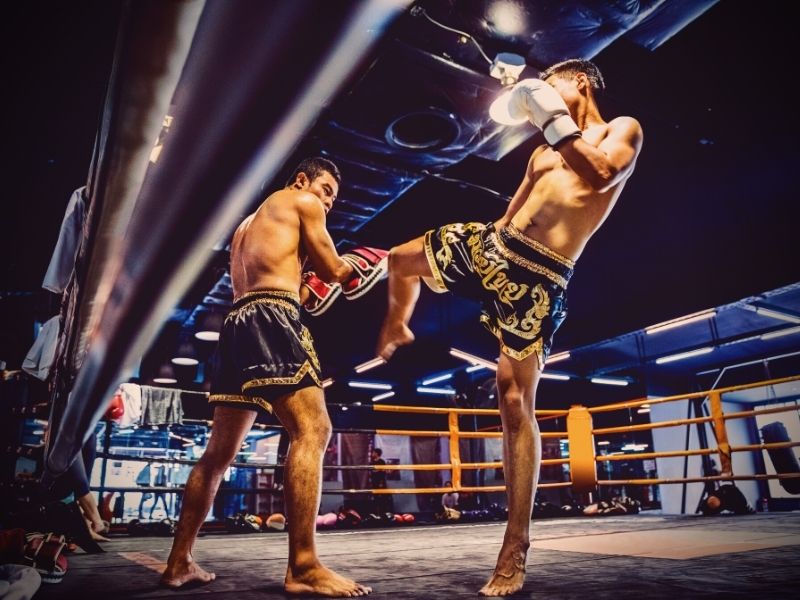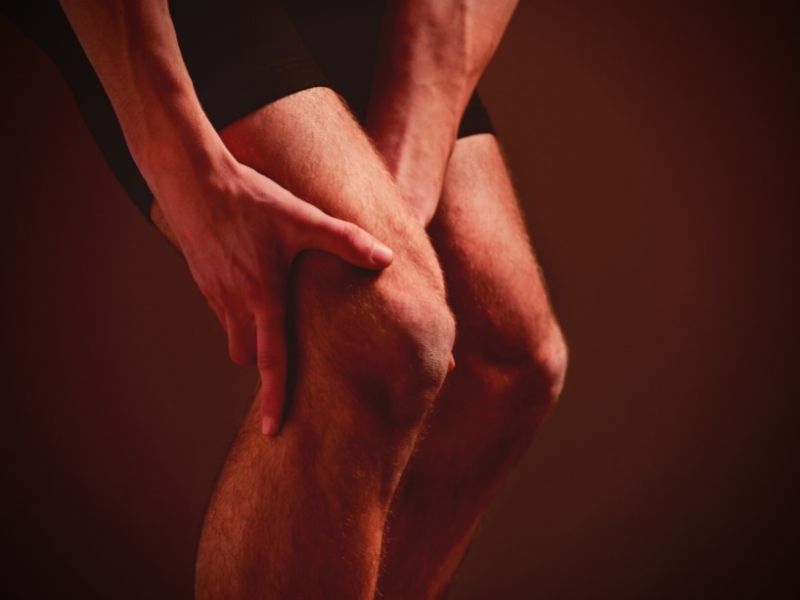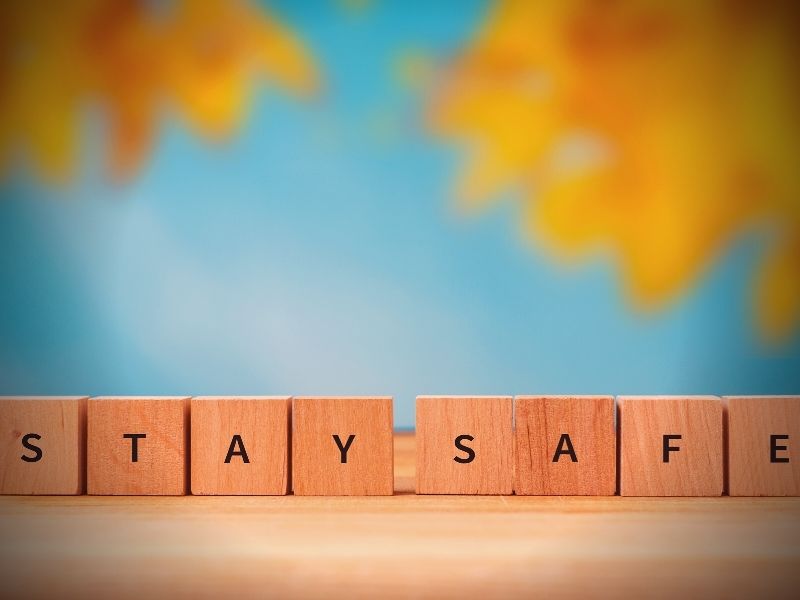
Looking to get into Muay Thai for self-defense? If you are, then you've made a great choice. It's an incredible martial art that's definitely worth looking into.
But if you're entirely new, then you're probably still wondering, "is Muay Thai dangerous?" And I get you, I totally do! And you'd be entirely reasonable for thinking this way, especially since safety should always be your top priority.
Tons of people ask themselves that question before actually getting started with the hobby, and it's entirely a sound question thing to be curious about in the first place. Thankfully for you, I've got all the facts you need right here in this article. Let's get into it!
Is Muay Thai Dangerous? The Risks Explained

Muay Thai can be brutal. Some of the possible injuries you can run into are pretty nasty things like broken bones, serious bruises, and concussions.
Sparring or competing in a sport as intensive as Muay Thai is bound to cause a few injuries, as you might expect. There are inherent risks in any combat sport, and Muay Thai is absolutely no different.
And yes, worst case scenarios can and do happen. I can't really sugarcoat this. Muay Thai really is an aggressive, brutal sport, and there have been some catastrophic accidents in the past.
In 2011, for example, a 13-year-old boy died after sustaining a head injury during a Muay Thai match in Thailand.
Take heart though: cases like these are extraordinarily rare, one in a million, and the overwhelming majority of Muay Thai practitioners will never experience any sort of serious injury, with most being fairly superficial bruises, hyperextension, or even just a tough but still tolerable case of DOMS.
Just do what you can to be aware of the dangers of Muay Thai before you decide to participate in it. It's an exciting sport, but it's also challenging, and you ought to do what you can to be ready for the challenges it'll throw at you.
The Most Common Injuries Sustained In Muay Thai

Some injuries you should watch out for in Muay Thai are:
- Sprains and Strains: These injuries are common in Muay Thai due to the fast-paced nature of the sport. They often occur when you make a sudden movement, such as changing direction quickly or when you stretch or twist your body in an awkward way.
These movements can cause your muscles or ligaments to get some fairly nasty stretches or tears, leading to pain, swelling, and limited mobility. - Head Injuries: Head injuries are a significant concern in combat sports such as Muay Thai. Blows to the head can cause concussions, which are a type of brain injury that can result in headaches, dizziness, confusion, and memory loss.
Repeated head injuries can even lead to chronic traumatic encephalopathy (CTE), a degenerative brain disease. - Knee Injuries: Knees are one of the most vulnerable areas in Muay Thai, as they are often targeted by strikes such as kicks and knees.
These attacks can easily cause your knee to twist or hyperextend, which can lead to ligament tears, meniscus injuries, and other serious problems. - Ankle Injuries: Like the knees, the ankles are also at risk of injury in Muay Thai. When you kick someone, you might also end up twisting your own ankle, which... well, you can probably imagine why that won't turn out good for you.
These injuries can be a fair bit more painful than the other things we mentioned in this list, and they may require rest and rehabilitation to heal properly. - Shin Splints: Shin splints are a common injury in Muay Thai due to the heavy degree of impacts involved in the sport. These injuries occur when the muscles and tendons in your shin become inflamed and irritated, causing pain and discomfort.
Shin splints can overall be prevented by gradually increasing your training intensity and by wearing proper footwear with good shock absorption.
Additional Risks Involved When Practicing Muay Thai

Those aren't the only things you should watch out for though. There are a few other things you'll need to be mindful of, like infectious diseases.
Skin infections and staphylococcus infections are just a couple of the communicable diseases that can be spread through contact with contaminated training equipment or other individuals. Don't worry too much though, because there are ways to minimize your risk of infection.
One way to do just that is by, surprise surprise, practicing good hygiene! Thoroughly wash both your body and your training gear after each training session. You'll likely already wnat to do this just to cool down, but it's worth mentioning either way.
Also avoid sharing personal items, like towels or water bottles, with others. It's not that you want to be mean to anyone, but these things are great avenues for bacteria and viral infections to spread. You just want to play things safe, that's all.
So remember, your enemy here isn't just physical injuries, but also infectious diseases. And when engaging in close physical contact with other people during your training or competitions, your risk of infection will only increase.
And yeah, sure, the chances of contracting a disease will likely be low at the end of the day, but it's still crucial for you to be mindful of them, especially when the consequences can be pretty serious.
How To Stay Safe When Practicing Muay Thai

Like any physical activity, Muay Thai comes with inherent risks. Don't worry too much though, because proper training and supervision can drastically reduce the chances of any harm befalling you. As such, always be sure to follow guidelines when practicing this martial art.
And we're serious about that! Always follow the instructions set out by your instructor. They absolutely do know what's good for you, and they have the experience and knowledge necessary to teach you the proper techniques while minimizing the risk of injury.
In addition, make sure to wear the appropriate protective gear, such as a mouthguard and headgear. This will help protect you from any blows to the head or mouth, which can be particularly dangerous.
It's also important to listen to your body and not push through the pain of an injury. Ignoring it absolutely won't be good for you, and it can lead to further damage and lengthen your recovery time. So if you feel like something isn't quite right, take a break and assess the situation.
Maintaining good hygiene is another key aspect of staying safe while practicing Muay Thai. Be sure to disinfect your training equipment regularly, and avoid sharing your gear with others! Not only is that an excellent way to get an infectious disease, it's also just... well, really icky.
Next up, avoid risky behavior, like performing dangerous stunts or not treating your sparring partners with respect.
These actions won't just draw the ire of your instructor and your fellow practitioners, but they also absolutely can put you and your training partners at risk. They should be avoided at all costs.
And finally, before you actually start each session, be sure to warm up and stretch properly first. I know, I know, it's cliche, but it really is worth saying, especially to prepare your body for all that physical activity.
Muay Thai is one of most strenuous martial arts out there, so you really do want that extra bit of preparation, trust me! And, if you do sustain an injury, seek medical attention right away to make sure you get proper treatment and prevent further damage.
If you stick to these tips and prioritize your own safety, then you don't need to worry about too much. You'll be able to enjoy the many benefits of Muay Thai, all the while without putting yourself at any unnecessary risk.
Conclusion
Well, there you have it! Muay Thai, like any physical activity, comes with its fair share of risks, but they can be minimized by following proper safety precautions and hygiene practices.
Injuries and infectious diseases are potential dangers, yes, but they absolutely shouldn't deter you from practicing this incredible martial art.
So for those of you interested in exploring the world of Muay Thai, don't be afraid to take that first step. You'll be glad you embarked on this journey of self-discovery and growth.
[author-box-jpx-fitness]
